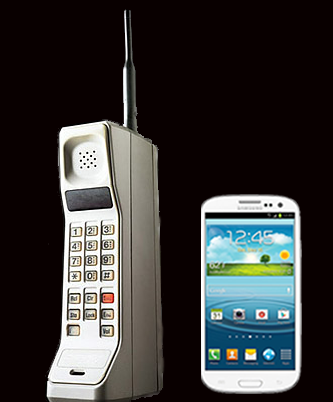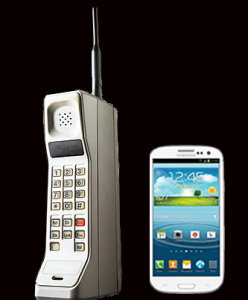
The mobile phone is 40 years today. 4 decades ago, the technology was introduced into the world, and today it has evolved from a glorified walkie-talkie to mini computers, or rather smartphones, having more power than computers made in 1973.
Martin Cooper, 83, of Motorola, made the first call with the 1kg DynaTAC handset, in front of the New York Hilton, to the head of Bells Lab, who was inside the hotel. He’s known as the father of Mobile Phones, and is celebrated worldwide. CISCO made a special graphic for the mobile technology timeline, as shown below.
It includes when the first commercial text message was shown, when WiFi came to mobile, and more. Check out the first mobile phone below, with one of the world’s major smartphones, Samsung Galaxy SIII.




